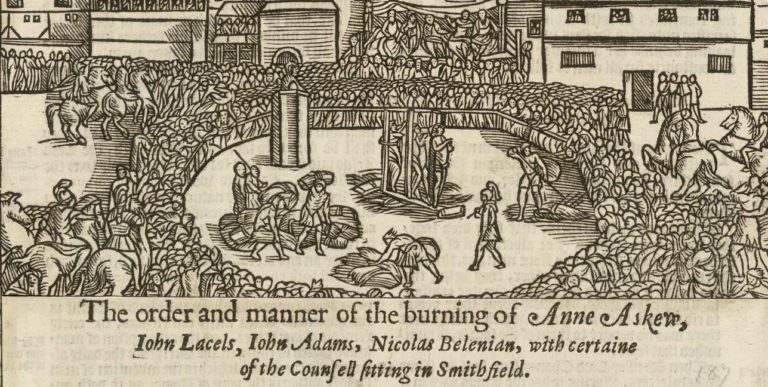Ten years ago after, returning from a trip to the USA, I wrote an article looking at the characteristics of a few prominent churches that attract a high proportion of Roman Catholics. These conclusions were based on my personal observations and anecdotes; the phenomenon of growing churches reaching a significant number of people from a Roman Catholic background warrants further consideration and study.
A Fresh Look at This Phenomenon
I recently returned from a visit to a large overseas church. A similar phenomenon is happening there to what I had seen in the United States. They are experiencing rapid church growth, the staff tell me, mainly from people converting from a Roman Catholic background. The church now runs eight services a week at two locations in their city. They are baptising thirty or more people a week and the church has grown quickly to about two thousand people. The small group (of thirty people) that I attended had ten people in it converted from a Catholic background. One from Germany, three from the Philippines, one from Australia, one from India and four from African nations. The proportion of Catholic people in this group was more than double the proportion of Catholics in the city.
This church has several of the same features I observed in the American churches back in 2015: their Bible teaching is clear and relevant, focused on Jesus and the gospel; they address social, family and personal needs through programs; and they run a slick, positive one-hour service.
There is one other feature of this church’s context that I think contributes to this wonderful growth: the city is a city of immigrants. Most people living in in this city weren’t born there. It is one of the most diverse populations in the world, comprised of people from over 120 different nationalities. When people immigrate, they are in transition away from traditional patterns of behaviour and networks of relationships. They must make new friends, start a new life. They are open to new things. This church I visited is making the most of this transitional experience by helping new people feel like they belong.
Churches Reaching Catholics in Australia
People who identify as Roman Catholic make up 20% of the Australian population and 23.1% of Greater Sydney. Whilst it is still difficult to get people from a Roman Catholic background to attend Protestant services because of their institutional understanding of church, there are many things we can do to make it easier for Catholics to hear the gospel. This is especially true for the 150 000 people from a Roman Catholic background that have just arrived in the last two years. Some of our capital cities are full of people in transition. This transition time presents a unique opportunity for evangelism.
Understanding the Roman Catholic theological system better can help us shape our ministries to be more effective in communicating the gospel clearly and attractively. In Talking with Catholics About Jesus, my co-presenters and I draw attention to three key aspects of Roman Catholic belief that can help us shape our ministries in ways that attract Catholics and more effectively communicate the gospel to them.[1]
Firstly, Catholics believe people are saved by belonging to the Catholic Church. As the sacrament of unity for the world, the Roman Catholic Church believes its role under God is to unite all people to itself as the Universal (“Catholic”) Church and through this Church to God. So when Catholics go to church they go to belong because that is how they believe they are saved. When Catholics come to Protestant churches they come with this understanding so this sense of belonging is of primary importance to them when they first arrive.
Secondly, Catholics believe that you are saved by experiencing the sacraments. They believe that the spiritual power they receive through the sacraments helps to perfect them so that they can merit salvation. So when Catholics come to our services they are looking for an experience they can engage in to bring them closer to God. For many Catholics, the music may be an initial meaningful point of contact for them, for others it may be the feelings invoked through preaching, for others the sandstone building or stained-glass windows. For evangelicals, the transformative experience we offer is encountering the person of our Lord Jesus through the preaching of his word and the testimony of his people living out their trust in his word. Clear Christ-focused Bible teaching and Christians sharing their personal testimonies can be really helpful for Catholics to appreciate the heart of gospel-centred spirituality.
Thirdly, Catholics believe that you need to relate to God through an authority. In Roman Catholicism there are three equal authorities: Scripture, Tradition and the Magisterium (the pope and other bishops). We share one of those authorities, the Bible. So clear authoritative teaching from the Bible can be a significant point of connection for Catholics coming to our churches, in particular preaching that teaches people how to read and understand the Bible for themselves, that they can begin to trust what they understand from the Bible more than they trust their Catholic priest or the Catholic Church.
Over the last couple of years I have added a fourth belief worth considering in my advice on how to engage with Catholics. We should preach about the person of Christ from the Scriptures. Roman Catholicism has a tendency to push the man Jesus into the background, overemphasising the divine nature of Christ at the expense of his human nature. [2] This results in Catholics substituting Christ for apparently more immanent and human mediators like Mary and the other saints, the pope and even their local priest. Preaching about the man Jesus Christ directly from the Scriptures will help Catholics realise they can know him, trust him and relate to him directly, rather than at a distance.
Finding points of connection with Catholic spirituality helps us welcome them in our churches and engage them with the gospel of grace. Catholics believe that you are saved by belonging, so invite them to belong in your church where they will hear the gospel of salvation through grace alone and faith alone. Catholics believe you are saved by experiencing God through the sacraments, so share your gospel-centred experience with them. Catholics believe that you need to approach God through an authority so show them how to read the Bible as the supreme authority. Catholics tend to overemphasise the divine nature of Christ, so preach the whole of Christ Jesus from the Scriptures.
[1] M. Gilbert, C. Overhall, S. Cowell, Talking with Catholics About Jesus. Matthias Media, 2021.
[2] In his day, Calvin argued, against contemporary Catholic teaching, that Jesus had a human soul. For e.g. Inst. II, xiv. It took the Roman Catholic Church over a hundred years to concede Calvin was correct. More recently Herni Blocher in his book La doctrine de l’Église et des sacrements. Tome 1 makes a similar point. See also Leonardo De Chirico’s review of Blocher’s book.
To support the ongoing work of the local team at The Gospel Coalition Australia, make a donation here.











